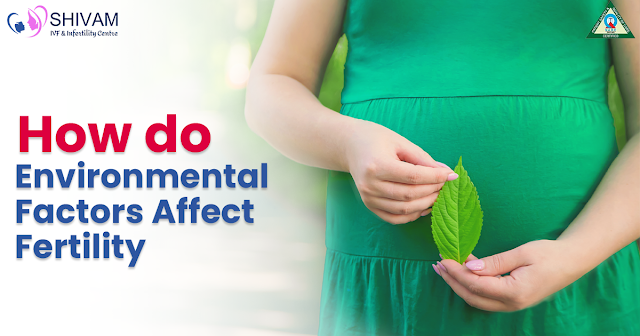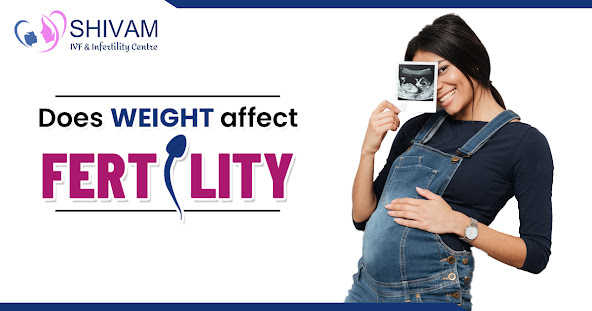How do Environmental Factors Affect Fertility?
The environment has a significant impact on conception rates and reproductive health. The environment can have a considerable impact on the results of reproduction since humans are quite sensitive to it.
The Best Infertility Centre in Delhi, Shivam IVF and Infertility Centre is shedding light on the importance of how environmental factors affect fertility.
Common environmental factors that can impact fertility
1. When it comes to fertility, several common environmental factors can impact reproductive health. Here are some examples:
2. Fertility can suffer as a result of toxic material exposure, water pollution, and air pollution.
3. Fertility can be impacted by extreme temperatures, both hot and cold. Men's sperm production can temporarily be lowered by heated environments, like saunas or hot tubs.
4. A poor diet deficient in vitamins and key nutrients can harm fertility. Reduced fertility in both men and women has been linked to dietary deficiencies such as those in folate, zinc, and vitamin D.
5. Because chronic stress throws off the hormonal balance, it can affect fertility. It can cause women's menstrual periods to become irregular and men's sperm quality and quantity to decline.
6. Some jobs expose workers to noxious elements or situations that can damage fertility.
7. Fertility rates can also be impacted by family planning, education, and access to healthcare services. A person's capacity to manage their reproductive health may be impacted by limited access to reproductive healthcare, including fertility treatments and contraceptives.
What to do for reducing exposure to environmental factors that impact fertility?
Reducing exposure to environmental factors that impact fertility is crucial for promoting reproductive health. Here are some steps you can take to minimize your exposure to these factors:
1. Minimize exposure to pollution: When possible, avoid regions with high levels of air pollution. Keep abreast of local air quality conditions and make an effort to restrict outside activities when conditions are unfavorable.
2. Maintain a healthy diet: Maintain a healthful and balanced diet to enhance reproductive health. Your meals should contain a variety of fresh fruits, vegetables, whole grains, lean proteins, and healthy fats.
3. Manage temperature exposure: Reduce exposure to high temperatures by avoiding prolonged exposure, which could damage fertility. Avoid spending too much time in heated environments, such as saunas or hot tubs.
4. Manage stress: Practice stress reduction practices to lessen the negative effects of ongoing stress on fertility. Take part in relaxing activities, such as yoga, meditation, or physical activity, or spend time in nature.
5. Make healthy lifestyle choices: Refrain from using drugs, excessive alcohol consumption, and smoking, all of which can harm fertility. Strive to acquire and maintain a healthy weight because being obese might have a detrimental impact on fertility.
6. Practice safe occupational measures: If you operate in a setting that could endanger your fertility, observe safety procedures and wear protective equipment. To reduce exposure to potentially dangerous substances or circumstances, consult with occupational health specialists.
7. Access to reproductive healthcare: Make sure that everyone has access to complete reproductive healthcare. Visit a doctor frequently for examinations, tests, and talks about reproductive health.
Conclusion
It is important to seek the advice of a reputed infertility specialist like Dr. Bhavana Mittal. She offers helpful advice, medical know-how, and kind support as you negotiate the road to parenting. Don't be afraid to get in touch with the best Infertility Clinic in Delhi to discuss your desires and take proactive measures to realize your dream of becoming a parent.




Comments
Post a Comment